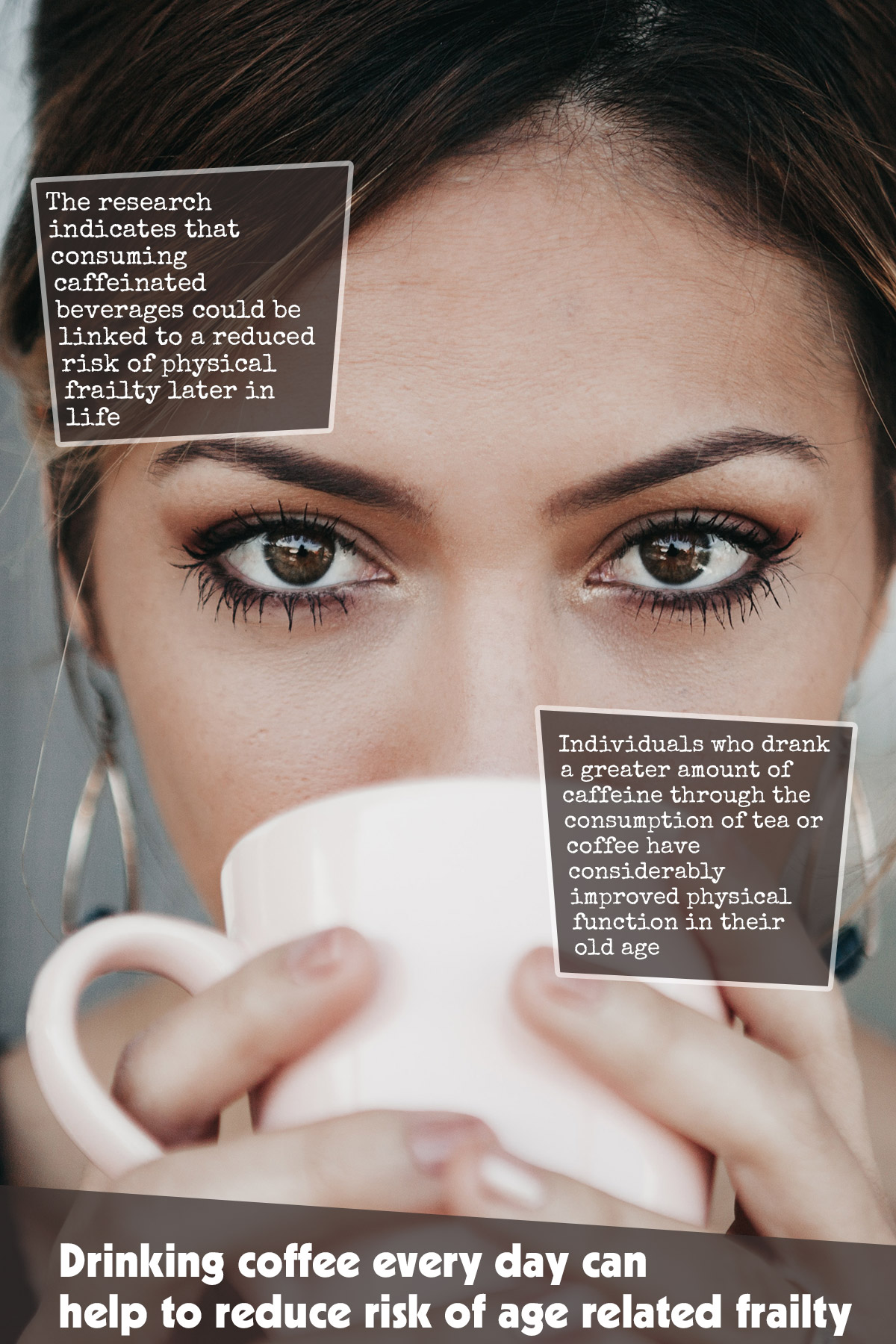Research has found that individuals who drank a greater amount of caffeine through the consumption of tea or coffee had considerably improved physical function in their old age. This research was carried out based on information obtained from over 12,000 individuals between the ages of 45 and 74 years over a follow-up of 20 years.
Individuals were interviewed making use of a structured questionnaire between 1993 and 1998 for the 1st time at a midlife age of 53 years on average.
During these interviews, the individuals were questioned about their beverage consumption habits that contained caffeine which included soft drinks, tea, and coffee, as well as about portion size and frequency of food consumed that contained caffeine which included chocolate.
Information was also provided on sleep duration, physical activities, dietary habits, height and weight, medical history, and sociodemographic characteristics.
Throughout the time of the 2nd follow-up interviews between 2006 and 2010, the individuals were asked to document their weight as well as other information. In the 3rd and follow-up interviews carried out between 2014 and 2017, when the individuals were 73 years of age on average, they were asked to document their weight again, and they were also asked a specific question: “Are you feeling full of energy?”
Handgrip strength was also evaluated, and the time it took to finish the timed up-and-go test (TUG). Physical frailty was classified as having a minimum of 2 of the 4 factors of
1. Weight loss defined as over 10% weight lost between the 2nd and 3rd follow-up.
2. Exhaustion defined as a yes answer.
3. Slowness defined as the slowest TUG quintile.
4. Weakness determined by weakest handgrip strength quintile.
Tea and coffee were the primary sources of caffeine consumption in these participants, accounting for 12% and 84% of total caffeine. A total of 68.5% of them consumed coffee every day. In this group, 52.9% consumed one cup daily, 42.2% drank 2 to 3 cups daily while the other 4.9% consumed 4 or more cups daily.
The individuals were subsequently grouped into 4 categories based on their coffee consumption: non-drinkers, a daily cup, 2 to 3 daily cups, and 4 or more daily cups.
Tea consumers were grouped into 4 categories based on their consumption frequency: never, a minimum of once a month, a minimum of once weekly, and daily drinkers.
The results revealed that consuming coffee, green, or black tea at midlife was independently linked to a significantly reduced chance of physical frailty later in life. Individuals who consumed 4 or more daily cups of coffee had a significantly reduced risk of physical frailty later in life, in comparison to individuals who didn’t drink coffee every day.
Individuals who consumed green or black tea daily also had a considerably reduced risk of physical frailty in comparison to non-tea drinkers.
The caffeine consumption and the risk of physical frailty association in late life was further assessed. Higher caffeine consumption was linked to a reduced risk of physical frailty, irrespective of the caffeine source.
Of the 4 physical frailty factors, the associations were more pronounced for the TUG and handgrip strength tests compared to the self-reported exhaustion and weight loss measures.
Caffeine has been found to increase muscle cell proliferation and improve muscle weight in studies in mice.
Besides caffeine, tea and coffee also provide rich bioactive polyphenols, which contain anti-inflammatory and antioxidant properties, and have been linked to reduced risk for conditions that increase frailty, which include neurodegenerative diseases, obesity, cardiovascular diseases, and diabetes.
Further scientific studies are however needed to determine the actual underlying mechanisms of the tea/coffee and human physical function association.
The research indicates that consuming these caffeinated beverages could be linked to a reduced risk of physical frailty later in life.
